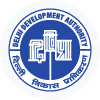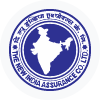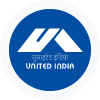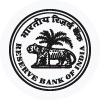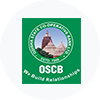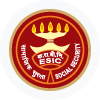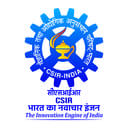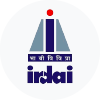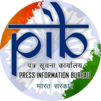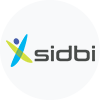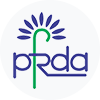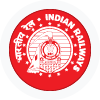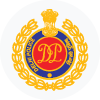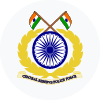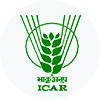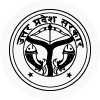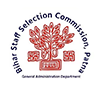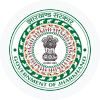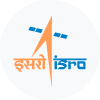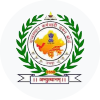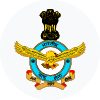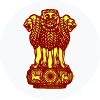The Delhi Development Authority (DDA) has released a notification for the recruitment of various posts for the year 2023. The DDA Recruitment 2023 aims to fill 687 vacancies of Assistant Section Officer, Assistant Accountant Officer, Legal Assistant, and other posts. The candidates who are interested and eligible can apply online through the official website of DDA from 3rd June to 2nd July 2023. The selection process will consist of an online exam and an interview (as per post requirement). The candidates can check the detailed notification, vacancy details, eligibility criteria, application fee, and other important information from the information provided below.
DDA 2023 Notification- Important Dates
| Opening date & time for online registration of application | 03/06/2023 (10:00am) |
Last date & time for payment of application fee and closing of online registration of application. | 02/07/2023 (06:00pm) |
| Tentative schedule of online examination (Stage – I) | 01.08.2023 – 30.09.2023 |
Tentative schedule of online examination (Stage – II) (wherever applicable) | To be notified later on DDA's website. |
NOTE: All the above dates are TENTATIVE and in case of any situation beyond control, these dates may be changed at any time. Information about such change(s), if any, will be given only onDDA's official website i.e. www.dda.gov.in . Candidates are advised to remain in touch with the website for information regarding this recruitment process and changes in the schedule, if any.
DDA 2023 Notification- Eligibility
| Post Code | Name of the post | Group | Pay Matrix as per 7th CPC | Age as on closing date for receipt of online applications | Qualification |
| 1 | Assistant Accounts Officer | B | Level 8 Pay Band 9300 – 34800/- Grade Pay 4800/- | Not exceeding 30 years | Chartered Accountant (CA) / Company Secretary (CS) / ICWA /Master in Financial Control / MBA (Finance), or equivalent from a recognized University/Institution M.Com will not be considered as equivalent qualification. |
| 2 | Assistant Section Officer (ASO) | B | Level 7 Pay Band 9300 – 34800 Grade Pay: 4600/- | Not exceeding 30 years (Relaxable for Government servants in accordance with the instructions or orders issued by the Central Government) Note: DDA employee possessing required qualifications as prescribed for direct recruits shall be eligible and the age limit shall not be applicable to them. | (i) Bachelor's Degree or equivalent from any recognized University. (ii) Computer Proficiency. |
| 3 | Architectural Assistant | B | Level 7 Pay Band 9300 – 34800 Grade Pay: 4600/- | 30 Years | Degree in Architecture from a recognized University/Institution or equivalent. |
| 4 | Legal Assistant | B | Level 7 Pay Band 9300 – 34800 Grade Pay: 4600/- | Not exceeding 30 years | (i) Possessing Regular Degree in Law (entitling the incumbent for Registration at Bar and appearing before the Courts) from a recognized University or equivalent; and (ii) 03 years' experience at Bar. FOR DDA EMPLOYEE Regular Degree in Law (entitling the incumbent for Registration at Bar and appearing before the Courts) from a recognized University or equivalent and 03 years of regular service in DDA. |
| 5 | Naib Tehsildar | B | Level 6 Pay Band 9300 – 34800 Grade Pay: 4200/- | Between 21 to 30 years (Relaxable for Government employees and employees of DDA in accordance with the instructions or orders issued by the Central Government) | Essential: i) Degree from a recognized University or equivalent with 50% marks or above. Desirable: 1. Knowledge ofapplication of various acts, regulation and procedures concerning Land and Estate matters; 2. Possession of Degree in Law would be an added advantage.Note: Training shall be imparted to the new incumbents by the department and probation shall be lifted only on successful completion of the training. |
| 6 | Junior Engineer (Civil) | B | Level 6 Pay Band 9300 – 34800 Grade Pay: 4200/- | Between 18 to 27 years (Relaxable for Government servants and Delhi Development Authority upto the age of forty years in the case of general candidates and upto forty-five years in the case of candidates belonging to the Scheduled Castes or Scheduled Tribes in accordance with the instructions or orders issued by the Central Government from time to time). | Diploma in Civil Engineering from a recognized Institution or equivalent. |
| 7 | Surveyor | C | Level 5 Pay Band 5200 – 20200 Grade Pay: 2800/- | Between 18 to 25 Years (Relaxable to Govt. Servant and Employees of DDA in accordance with the instructions or orders issued by the Central Govt.) | (i) Diploma OR two years' National Trade Certificate in Surveying from recognized Institute or equivalent and (ii) Two years' experience in Survey work. |
| 8 | Patwari | C | Level 3 Pay Band 5200 – 20200 Grade Pay: 2000/- | Between 21-27 years (Relaxable for Govt. Employees and Employees of DDA in accordance with the instructions or orders issued by the Central Govt.) | Essential: Graduate from any recognized University or equivalent thereof. Desirable: i)Proficiency in computer. ii)Working knowledge of Urdu/Hindi Note: – Training shall be imparted to the new incumbents by the department and probation shall be lifted only on successful completion of the training. |
| 9 | Junior Secretariat Assistant | C | Level 2 Pay Band: 5200- 20200/- Grade Pay: 1900/- | Between 18-27 years (Relaxable for Govt. Employees and Employees of DDA upto 40 years in accordance with the instructions or orders issued by the Central Govt.) | i)12th class or equivalent qualification from a recognized Board or University. ii)Typing speed of 35 w.p.m. in English or 30 w.p.m. in Hindi on Computer (35 w.p.m. and 30 w.p.m. correspond to 10500 KDPH/9000 KDPH on an average of 5 key depressions for each word.) |
DDA 2023 Notification- Vacancies
| Post Code | Name of the post | Total vacancies | UR | EWS | SC | ST | OBC |
| 1 | Assistant Accounts Officer | 51 | 23 | 5 | 7 | 3 | 13 |
| 2 | Assistant Section Officer (ASO) | 125 | 52 | 12 | 19 | 9 | 33 |
| 3 | Architectural Assistant | 9 | 4 | 1 | – | 1 | 3 |
| 4 | Legal Assistant | 15 | 9 | 1 | 2 | 1 | 2 |
| 5 | Naib Tehsildar | 4 | 1 | 1 | 1 | – | 1 |
| 6 | Junior Engineer (Civil) | 236 | 98 | 23 | 35 | 18 | 62 |
| 7 | Surveyor | 13 | 7 | – | – | 02* | 04* |
| 8 | Patwari | 40 | 17 | 4 | 6 | 3 | 10 |
| 9 | Junior Secretariat Assistant | 194 | 114 | 28 | 30 | 6 | 16 |
Note: – In case of the candidates possessing equivalent educational qualification, such candidates shall also produce relevant Equivalence Certificate from the authorities concerned at the time of Document Verification. However, final decision regarding selection of such candidates will be taken by DDA.
DDA 2023 Notification- How to Apply?
Candidates can only apply online through the official website of DDA i.e. www.dda.gov.in. Applications received through any other mode/means will not be accepted and will be summarily rejected. To apply online, visit our website www.dda.gov.in go to "Jobs" à "Select JobCategory" à " Direct Recruitment 2023". No other mode/channel would be acceptable under any circumstance.
DDA 2023 Notification- Application Fee
- Application Fee will be ₹1,000/- for all categories of posts. Transaction charges of the bank, taxes, as applicable shall be borne by the candidate.
- Women candidates and candidates belonging to Schedule Caste, Schedule Tribe, PwBD & Ex- servicemen categories are exempted from paying Application fee.
DDA 2023 Notification- Scheme of Examination
| Post Code | Name of the post | Mode of Recruitment | Details of Examination |
| 01 | Assistant Accounts Officer | Single Stage computer based examination followed by Interview of the shortlisted candidates | The question paper shall be of 02 hours duration of 120 marks consisting of 120 questions of objective type (multiple choice questions) of the respective discipline as well as questions on test of reasoning, quantitative aptitude, general awareness and English language followed by Interview of shortlisted candidate. |
| 02 | Assistant Section Officer | Two stage computer based examination Objective Multiple Choice Type followed by Computer Proficiency Test and DEST | Stage-I:General Intelligence and Reasoning – 50 Marks/ 25 Questions General Awareness – 50 Marks/ 25 Questions Quantitative Aptitude – 50 Marks/ 25 Questions English Comprehension – 50 Marks/ 25 Questions Total – 200 Marks/ 100 Questions (Duration – 01 Hours). |
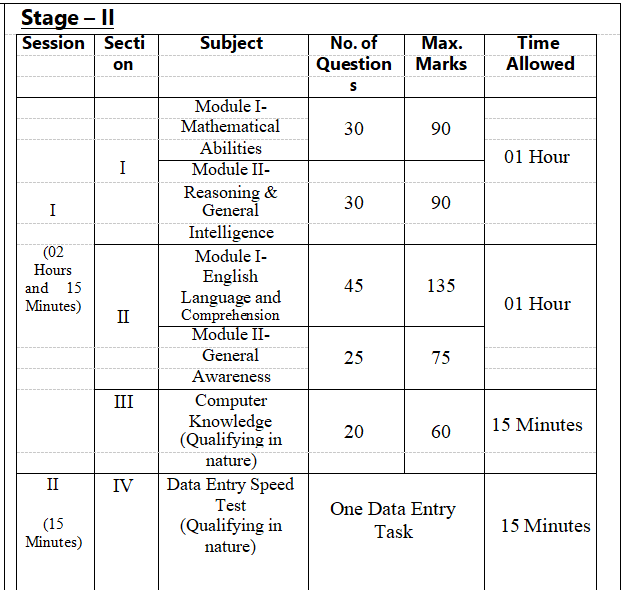
| 03 | Architectural Assistant | Single Stage computer based examination | The question paper shall be of 02 Hours duration of 120 marks consisting of 120 questions of objective type (multiple choice questions) of the respective discipline as well as questions on test of reasoning, quantitative aptitude, general awareness andEnglish language |
| 04 | Legal Assistant | Single stage computer based examination | The question paper shall be of 02 hours duration of 120 marks consisting of 120 questions of objective type (multiple choice questions) of the respective discipline as well as questions on test of reasoning, quantitative aptitude, general awareness andEnglish language. |
| 05 | Naib Tehsildar | Single Stage computer based examination | The question paper shall be of 02 Hours duration of 120 marks consisting of 120 questions of objective type (multiple choice questions) of the respective discipline as well as questions on test of reasoning, quantitative aptitude, general awareness and English language |
| 06 | Junior Engineer (Civil) | Single stage computer based examination | The question paper shall be of 02 Hours duration of 120 marks consisting of 120 questions of objective type (multiple choice questions) of the respective discipline as well as questions on test of reasoning, quantitative aptitude, general awareness and English language. |
| 07 | Surveyor | Single Stage computer based examination | The question paper shall be of 02 Hours duration of 120 marks consisting of 120 questions of objective type (multiple choice questions) of the respective discipline as well as questions on test of reasoning, quantitative aptitude, general awareness andEnglish language |
| 08 | Patwari | 2 stage computer based examination | Stage I: (Preliminary) General Awareness, General Intelligence & Reasoning Ability, Arithmetical & Numerical Ability, Hindi & English (Language & comprehension) and Basic Computer knowledge (120 questions/120 marks of 2 Hrs duration)Stage II: (Mains) General Awareness (Special Emphasis on Delhi), General Intelligence & Reasoning Ability, Arithmetical & Numerical Ability, English Language & comprehension, Hindi or Urdu language and comprehension, Basic Computer knowledge (200 questions/200 marks of 2 Hrs duration). |
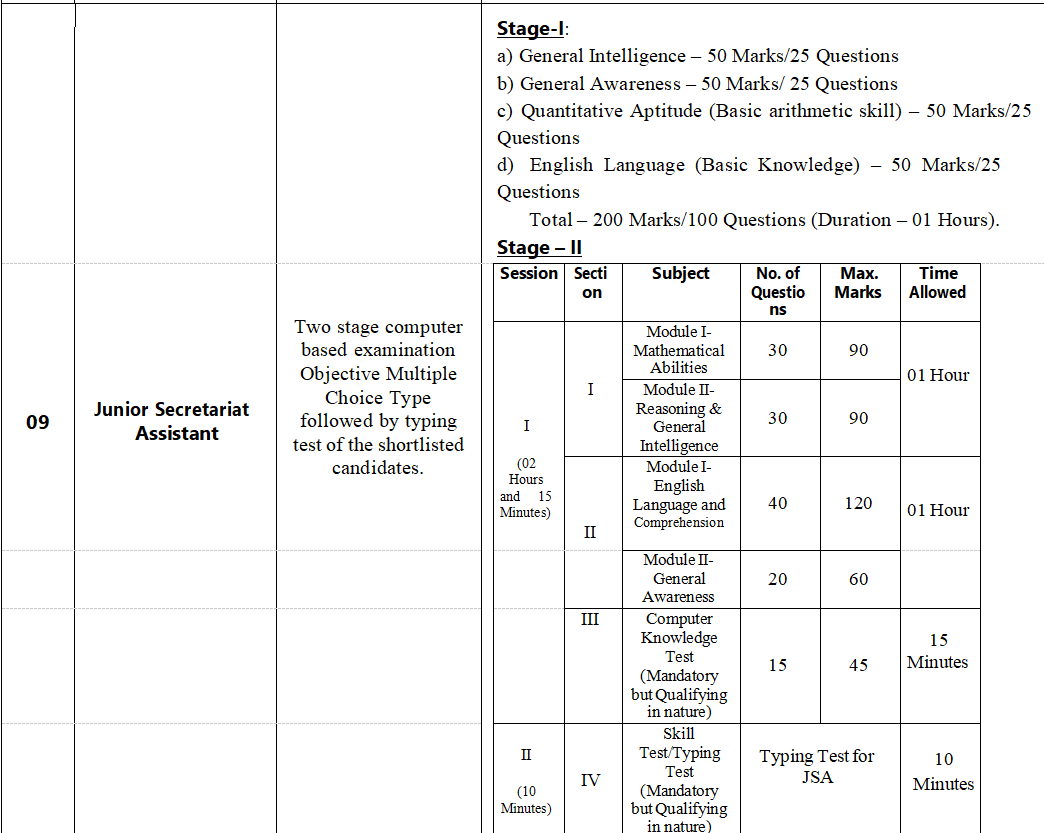
- The standard and syllabus of the On-Line examination will be of the level of prescribed minimum qualification. The medium of the On-Line examination will be Hindi / English only for all categories of posts except for Hindi/ English Comprehension. The weightage of marks of Computer Based Examination will be 85 % and Interview will be of 15% marks, wherever prescribed.
- Marks scored by candidates in Computer Based Examinations, if conducted in multiple shifts, will be normalized by using the formula published by the DDA on its website and such normalized scores will be used to determine final merit and cut-off marks.
For the Post Code 02 (Assistant Section Officer):
Section-IV of Session II of Stage-II i.e. Data Entry Speed Test (DEST):Section-IV of Session II of Stage-II will include conducting of a Data Entry Speed Test (DEST) for a duration of 15 minutes in Session-II on the same day.DEST will be mandatory however, it will be qualifying in nature. DEST will be conducted in the manner decided by the DDA for the purpose and the detailed instruction regarding the same will be uploaded on DDA website in due course of time.OH candidates are eligible for exemption from attempting DEST, provided such candidates submit a Certificate in the prescribed format (Annexure- 7,8,9) to the DDA from the competent Medical Authority, i.e., the Civil Surgeon of a Government Health Care Institution declaring him to be permanently unfit for the Typing Test because of a physical disability. PwBD candidates who are eligible for scribes as per para- 2.11.1, 2.11.2 and 2.11.3 of the Notice of Examination will be allowed additional compensatory time of 5 (five) minutes in DEST. Only those VH candidates who opt for scribes in the written examination will be provided passage reader at the time of DEST.
For the Post Code 09 (Junior Secretariat Assistant)- Typing Test:
- Section-IV of Session II of Stage-II will include conducting of Skill Test/ Typing Test in Session-II on the same day. Skill Test/ Typing Test will be of qualifying nature.
- The medium of Typing Test will be Hindi or English. The candidates will have to opt for the medium of Typing Test (i.e. either Hindi or English) in the online Application Form.
The choice of Typing Test given by the candidate in the online Application Form shall be treated as final and no change in the medium of Typing Test will be entertained later at any stage.
- Typing Test will be conducted in the manner decided by the DDA for the purpose and the detailed instruction regarding the same will be uploaded on DDA website in due course of time.
- Candidates eligible for scribe as per Para 2.11.1, 2.11.2 and 2.11.3 will be given compensatory time of 5 minutes. Therefore, duration of Typing Test for such candidates will be 15 minutes.
- Passage Dictators will be provided to those VH candidates for the Typing test who have opted for scribe in the online Application Form. The Passage Dictator will read out the passage to VH candidate within the allotted time period.
- Persons with Disabilities candidates who claim to be permanently unfit to take the Typing Test because of a physical disability may, with the prior approval of the DDA, be exempted from the requirement of appearing and qualifying at such test, provided such a candidate submits a Certificate in the prescribed format (Annexure- 7,8,9) to the DDA from the competent Medical Authority, i.e., the Civil Surgeon of a Government Health Care Institution declaring him to be permanently unfit for the Typing Test because of a physical disability. In addition, such candidates must substantiate their claim by furnishing the relevant Medical Certificate in the prescribed format as per Annexure- 7,8,9 of the Notice of Examination, as applicable, at the time of Typing Test. Otherwise their claim for seeking exemption from Typing Test will not be entertained by the DDA.
Penalty for wrong answers: Candidates should note that in order to discourage the guess work, in all such cases where the question is of 01 mark, there will be penalty of 0.33 (negative marking) for wrong answers / multiple answers marked by a candidate in the objective type question papers having four alternatives. However, where question is of 02 marks and 03 marks, there will be penalty of 0.66 mark and 1 mark (negative marking) respectively.
For the post of Junior Secretariat Assistant (JSA):
Minimum qualifying marks in Stage-I & Section-I, Section-II and Section-III of Stage-II Examination are as follows:
a) UR : 40% b) OBC/ EWS : 35% c) SC/ST: 30%
- Based on the marks scored in Stage-I i.e. Computer Based Examination, candidates will be shortlisted, category-wise, to appear in Stage-II Examination. Separate cut-offs will be fixed for Stage – II.
- Stage-II Examination will be conducted for all the candidates qualified in Stage-I. In Stage-II, all shortlisted candidates will be required to appear in all four sections.
- In Stage-II, it will be mandatory for the candidates to qualify in all the sections.
- Based on the aggregate performance in Section-I and Section-II of Stage-II Examination, candidates will be shortlisted for evaluation of Section-III & Section-IV of Stage-II Examination. The candidates who are not qualified in Section-I + Section-II will not be eligible for evaluation of Section-III & Section-IV and they will not be considered for further selection process.
- Section-III & Section-IV of Stage-II is qualifying in nature, in other words both modules i.e. Computer Knowledge Test and Skill Test/ Typing Test are qualifying in nature but mandatory. Typing Test for JSA is mandatory for all candidates except those who are exempted from appearing in the Typing Test as per Para-9.5.7
- Merit list will be prepared on the basis of overall performance of candidates in Stage-II Examination only. Merit List will be prepared on the basis of aggregate marks scored in Section-I & Section-II of Stage-II examination only subject to qualifying Section-III & Section-IV.
For the post of Assistant Section Officer (ASO):
Minimum qualifying marks in Stage-I & Section-I, Section-II and Section-III of Stage-II Examination are as follows:
a) UR: 40% b) OBC/ EWS: 35% c) SC/ST: 30%
- Based on the marks scored in Stage-I i.e. Computer Based Examination, candidates will be shortlisted, category-wise, to appear in Stage-II Examination. Separate cut-offs will be fixed for Stage – II.
- Stage-II Examination will be conducted for all the candidates shortlisted in Stage-I. In Stage-II all the candidates will be required to appear in all four sections it will be mandatory for the candidates to qualify all the sections.
- Based on the aggregate performance in Section-I and Section-II of Stage-II Examination, candidates will be shortlisted for evaluation of Section-III & Section -IV of Stage-II Examination. The candidates who are not qualified in Section-I + Section-II will not be eligible for evaluation of Section-III & Section -IV and they will not be considered for further selection process.
- Section-III & Section -IV of Stage-II is qualifying in nature, in other words both modules i.e. Computer Knowledge Test and DEST are qualifying in nature.
- Merit list will be prepared on the basis of overall performance of candidates in Stage-II Examination only. Merit List will be prepared on the basis of aggregate marks scored in Section-I & Section-II of Stage-II examination only subject to qualifying Section-III & Section-IV.
For the post of Patwari :
Based on the marks scored in Stage-I i.e. Computer Based Examination, candidates will be shortlisted, category-wise, to appear in Stage-II Examination. Further final merit for selection of the candidates will be prepared on the basis of marks obtained by the candidates in Stage II examination only.
DDA 2023 Notification- Previous Years' Cut-offs
DDA JE Cut-offs 2018
| Name of the post | Parameters | SC | ST | OBC | UR | OH | HH | VH | Total |
Jr. Engineer (Civil) | Cut-Offs | 74.989 | 79.616 | 81.088 | 87.621 | – | 33.984 | – | |
| Candidates available | 53 | 26 | 123 | 106 | – | 04 | – | 312 |
Jr. Engineer (E/M) | Cut-Offs | 67.525 | 65.146 | 74.664 | 75.671 | – | – | – | |
| Candidates available | 12 | 05 | 21 | 44 | | | | 82 |
DDA 2023 Notification- Syllabus of Assistant Accounts Officer
Part-I: Based on advance knowledge of Academic field (Financial Accounting, Cost management & Taxation)
(A) Financial Accounting:
1. Basic concepts of Accounting: single and double entry, Accounting concepts and conventions, Books of Original Entry, Bank Reconciliation, Journal, Ledgers, Trial Balance, Rectification of Errors, Distinction between Capital and Revenue Expenditure.
2. Bills of Exchange
3. Depreciation Accounting
4. Valuation of Inventories
5. Adjusting and closing entries, Profit & Loss Accounts, Balance Sheet
6. Accounts of Non-profit organizations—Receipts and Payments and Income & Expenditure Accounts and Balance Sheet
7. Accounts from Incomplete Records
8. Royalty and Lease accounts
9. Branch and Department accounts
10. Concepts of interim reporting, Segment reporting, Corporate Social Responsibility
11. Accounting for Joint Ventures
12. Analysis of Financial Statements: Ratio Analysis, Common-Size Statements, Comparative Statements, Trend Analysis, Funds Flow Analysis/Statements, Cash Flow Analysis/ Statements Section
13. Introduction to Accounting Standards issued by the Institute of Chartered Accountants of India
14. Uniform Format of Accounts for Central Autonomous Bodies, prescribed by Government of India.
(B) Cost Management:
1. Cost Accounting Concepts
2. Prime Cost: Materials, Labour and Direct Expenses
3. Overheads – Office and Administration Overheads, Other Overheads
4. Books of Accounts in Cost Accounting
5. Cost Accounting Records Rules
6. Reconciliation of Cost and Financial Accounts
7. Job, Batch and Contract Costing
8. Process Costing, Operation Costing and Operating Costing
9. Production Accounts and Cost Sheets
10. Marginal Costing, Differential Costs and Cost Volume Profit Relationship
11. Standard Costing including Variance Analysis
12. Capital Budgeting and Discounted Cash Flow Techniques
(C) Taxation:
➢ (Income Tax)
1. Assessment year, Previous year, Person, Assessee, Charge of income-tax, Income, Gross Total Income, Total income and tax liability, Agricultural Income, Difference between exemption and deduction, Definition of Manufacture, Capital Asset, Company, Fair market value, Capital receipts vs Revenue receipts, Capital expenditure vs Revenue Expenditure, Method of accounting, Residential status of Individual & Company, Relation between residential status and incidence of tax, Receipt & Accrual of income, Income deemed to accrue or arise in India,
2. Income Computation and Disclosure Standards (ICDS).
3. Profits and gains of business or profession - Principles and Computation: Chargeability, General principles governing assessment of business income, Method of accounting, Scheme of deductions and allowances, Depreciation;
4. Capital gains - Principles and Computation: Meaning of capital asset, Transfer of capital asset, Computation of capital gain, Full value of consideration, Expenditure on transfer, Cost of acquisition, Cost of improvement, indexed cost of acquisition and indexed cost of improvement, Problems on computation of Long Term Capital Gains (LTCG) Tax.
➢ (GST)
1. Constitutional Aspects, GST Council, Administration of GST, Assessment and Audit, Dual GST Model, GST (Compensation to States) Act, 2017 GST Network,
2. Levy and collection of CGST & IGST - Application of CGST/IGST law, concept of supply including composite and mixed supplies, inter-State supply. intra-State supply, supplies in territorial waters, charge of tax, exemption from tax, composition levy. Distribution of IGST,
3. Place of supply, time and value of supply,
4. Input Tax Credit, Computation of GST Liability, Procedures of GST - registration, tax invoice, credit and debit notes, electronic way bill, accounts and records, returns, payment of tax including reverse charge, refund, job work, provisions relating to e-commerce, GST Forms.
(D) Miscellaneous:
1. Audit objectives, scope of Audit and Auditing Standards.
2. Government Budgeting and Budget Management.
3. Knowledge of Information Technology including MS Office and Accounting Software.
Part - Il: To measure candidate's reasoning ability, quantitative aptitude and proficiency in english and general awareness
a) Test of Reasoning
b) Test of Quantitative Aptitude
c) Test of General Awareness and
d) Test of English Language
DDA 2023 Notification- Syllabus of Assistant Section Officer
(Stage - I):
a) General Intelligence & Reasoning: It would include questions of both verbal and non-verbal type. This component may include questions on analogies, similarities and differences, space visualization, spatial orientation, problem solving, analysis, judgment, decision making, visual memory, discrimination, observation, relationship concepts, arithmetical reasoning and figural classification, arithmetic number series, non-verbal series, coding and decoding, statement conclusion, syllogistic reasoning etc. The topics are, Semantic Analogy, Symbolic/Number Analogy, Figural Analogy, Semantic Classification, Symbolic/Number Classification, Figural Classification, Semantic Series, Number Series, Figural Series, Problem Solving, Word Building, Coding & de-coding, Numerical Operations, symbolic Operations, Trends, Space Orientation, Space Visualization, Venn Diagrams, Drawing inferences, Punched hole/ pattern- folding& un-folding, Figural Pattern-folding and completion, Indexing, Address matching, Date & city matching, Classification of centre codes/roll numbers, Small & Capital letters/numbers coding, decoding and classification, Embedded Figures, Critical thinking, Emotional Intelligence, Social Intelligence.
b) General Awareness: Questions in this component will be aimed at testing the candidates' general awareness of the environment around him and its application to society. Questions will also be designed to test knowledge of current events and of such matters of every day observations and experience in their scientific aspect as may be expected of any educated person. The test will also include questions relating to India and its neighbouring countries especially pertaining History, Culture, Geography, Economic Scene, General Policy & Scientific Research.
c) Quantitative Aptitude: The questions will be designed to test the ability of appropriate use of numbers and number sense of the candidate. The scope of the test will be computation of whole numbers, decimals, fractions and relationships between numbers, Percentage. Ratio & Proportion, Square roots, Averages, Interest, Profit and Loss, Discount, Partnership Business, Mixture and Allegation, Time and distance, Time & Work, Basic algebraic identities of School Algebra & Elementary surds, Graphs of Linear Equations, Triangle and its various kinds of centres, Congruence and similarity of triangles, Circle and its chords, tangents, angles subtended by chords of a circle, common tangents to two or more circles, Triangle, Quadrilaterals, Regular Polygons, Circle, Right Prism, Right Circular Cone, Right Circular Cylinder, Sphere, Hemispheres, Rectangular Parallelepiped, Regular Right Pyramid with triangular or square base, Trigonometric ratio, Degree and Radian Measures, Standard Identities, Complementary angles, Heights and Distances, Histogram, Frequency polygon, Bar diagram & Pie chart.
d) English Comprehension: Candidates' ability to understand correct English, his basic comprehension and writing ability, etc. would be tested.
The questions in Parts a), b), & d) will be of a level commensurate with the essential qualification viz. Graduation and questions in Part - c) will be of 10th standard level.
(Stage - II):
a) Module-I of Session-I of Paper-I (Mathematical Abilities):
Number Systems: Computation of Whole Number, Decimal and Fractions, Relationship between numbers.
Fundamental arithmetical operations: Percentages, Ratio and Proportion, Square roots, Averages, Interest (Simple and Compound), Profit and Loss, Discount, Partnership Business, Mixture and Allegation, Time and distance, Time and work.
Algebra: Basic algebraic identities of School Algebra and Elementary surds (simple problems) and
Graphs of Linear Equations.
Geometry: Familiarity with elementary geometric figures and facts: Triangle and its various kinds of centres, Congruence and similarity of triangles, Circle and its chords, tangents, angles subtended by chords of a circle, common tangents to two or more circles.
Mensuration: Triangle, Quadrilaterals, Regular Polygons, Circle, Right Prism, Right Circular Cone,
Right Circular Cylinder, Sphere, Hemispheres, Rectangular Parallelepiped, Regular Right Pyramid with triangular or square Base.
Trigonometry: Trigonometry, Trigonometric ratios, Complementary angles, Height and distances
(simple problems only) Standard Identities
Statistics and probability: Use of Tables and Graphs: Histogram, Frequency polygon, Bar-diagram, Pie-chart; Measures of central tendency: mean, median, mode, standard deviation; calculation of simple probabilities.
b) Module-II of Section-I of Paper-I (Reasoning and General Intelligence):
Questions of both verbal and non-verbal type. These will include questions on Semantic Analogy, Symbolic operations, Symbolic/ Number Analogy, Trends, Figural Analogy, Space Orientation, Semantic Classification, Venn Diagrams, Symbolic/ Number Classification, Drawing inferences, Figural Classification, Punched hole/ pattern-folding & unfolding, Semantic Series, Figural Pattern folding and completion, Number Series, Embedded figures, Figural Series, Critical Thinking, Problem Solving, Emotional Intelligence, Word Building, Social Intelligence, Coding and de-coding, Numerical operations, Other sub-topics, if any.
c) Module-I of Section-II of Paper-I (English Language and Comprehension):
Vocabulary, grammar, sentence structure, synonyms, antonyms and their correct usage; Spot the Error, Fill in the Blanks, Synonyms/ Homonyms, Antonyms, Spellings/ Detecting mis-spelt words, Idioms & Phrases, One word substitution, Improvement of Sentences, Active/ Passive Voice of Verbs, Conversion into Direct/ Indirect narration, Shuffling of Sentence parts, Shuffling of Sentences in a passage, Cloze Passage, Comprehension Passage. To test comprehension, three or more paragraphs will be given and questions based on those will be asked. At least one paragraph should be a simple one based on a book or a story and the other two paragraphs should be on current affairs, based on a report or an editorial.
d) Module-II of Section-II of Paper-I (General Awareness): Questions are designed to test the candidates' general awareness of the environment around them and its application to society. Questions are also designed to test knowledge of current events and of such matters of everyday observation and experience in their scientific aspect as may be expected of an educated person. The test will also include questions relating to India and its neighbouring countries especially pertaining to History, Culture, Geography, Economic Scene, General policy and scientific research.
e) Section III of Session I of Stage - II (Computer Knowledge):
Computer Basics: Organization of a computer, Central Processing Unit (CPU), input/ output devices, computer memory, memory organization, back- up devices, PORTs, Windows Explorer. Keyboard shortcuts.
Software: Windows Operating system including basics of Microsoft Office like MS word, MS Excel and Power Point etc.
Working with Internet and e-mails: Web Browsing & Searching, Downloading & Uploading,
Managing an E-mail Account, e-Banking.
Basics of networking and cyber security: Networking devices and protocols, Network and information security threats (like hacking, virus, worms, Trojan etc.) and preventive measures.
DDA 2023 Notification- Syllabus of Architectural Assistant
Part-I
A) ARCHITECTURAL DESIGN THEORY & PRACTICE
1. Meaning of design.
2. Appreciation of beautiful objects.
3. Design in everyday life.
4. Logic in design.
5. Elements of design- line, form, color texture.
6. Principles of design- unity, variety, hierarchy.
7. Scale and proportions.
8. Balance, emphasis.
9. Focus, fashion, decoration.
10. Basic design and architectural design- Elemental Differentiation.
11. Perception and experience.
12. Tangible and intangible in architecture.
13. Function, structure and form.
14. Space, space usage and interrelationship of spaces.
15. Circulation within Spatial Units.
16. Horizontal Circulation.
17. Vertical Circulation.
18. Circulation and Spaces, between buildings.
19. Relationship of plan, section and elevation.
20. Architectural scale.
21. Programming in Architectural design.
22. Site Planning
23. Urban Design
24. Project Management
B) BUILDING CONSTRUCTION, SURVEYING & STRUCTURE
1. Building Materials
2. Building Technology & Innovations
3. Surveying methods
4. Specifications
5. Estimating & Costing
6. Working Drawings/GFC, Sections, Toilet & Staircase details, Door & window schedules
7. Surveying
8. Retrofitting
9. Basic Structure
10. Basic components of "building"
11. Role of Construction in Architecture
12. Brick as a structural material. 13.Stones as a building material
14. Stone masonry construction.
15. Basic structural design elements.
16. Definition and concepts: Instruments used; acquaintance with electronic surveying instruments.
17. Principles of surveying, Unit of Measurements.
18. Chain surveying. 19.Compass Surveying. 20.Leveling.
21. Contouring: Topographic maps.
22. Plain tabling.
23. Marking foundations.
24. Measuring building under construction.
STRUCTURAL DESIGN
1. Forces in structures.
2. Moments in structures.
3. Loads in structures. 4. IS:875
5. Types of supports.
6. Shear Force, Bending Moment.
7. Center of Gravity, Moments of Inertia.
C) PROFESSIONAL PRACTICE: BUILDING NORMS & APPROVALS
1. Master Plan of Delhi
2. Unified Building Bye Laws of Delhi
3. National Building Code
4. Fire safety norms
5. Disaster/ Risk Management
6. Harmonized guidelines & standards for universal accessibility in India
D) BUILDING SERVICES
1. Sources of surface and ground water, treatment of water, transportation and distribution at town level.
2. Water supply system: fittings, direct and indirect supply, layout and sizes of pipes, hot water supply, storage.
3. Sewerage system: systems, fitting and fixtures, sizes and layout, sewage collection, sewage treatment and disposal at town level.
4. Solid Water management.
5. Rain water drainage.
6. Water, Waste & Sanitation
7. Electrification, Lighting & Acoustics
8. HVAC, Mechanical Mobility, Fire Safety
E) ENVIRONMENTAL STUDIES
1. The multidisciplinary nature of environmental studies, Definition, scope and importance.
2. Natural Recourses.
3. Renewable and non-renewable resources.
4. Natural resources and associated problems.
5. Ecosystems.
6. Biodiversity and its conservation.
7. Environmental pollution.
8. Climate responsive design
9 Green building rating systems such as GRIHA, ECBC, LEED etc.
10. Sustainable / Energy Efficient Building Design
11. Social issues and environment
12. Human population and environment
F) HISTORY OF ARCHITECTURE Indian Subcontinent
1. Indus valley civilization.
2. Aryan/Vedic civilization.
3. Buddisht and Jain civilization.
4. Indio Aryan Temple Architecture.
5. Early and late Chalukyan architecture.
6. Dravidian Temple Architecture.
7. Vernacular Architecture
Western World
8. Ancient civilization- Mesopotamian, Sumerian, Babylonian, Persian, Assyrian, Egyptian civilization.
9. Classical Greek Architecture.
10. Roman Architecture. 11.Romanesque Architecture.
12. Early Gothic Architecture.
13. Renaissance Architecture.
14. Modern & Post-Modern Architecture
Contemporary Architecture
15. Works of Architects (such as B.V. Doshi, Charles Correa, Hafiz Contractor, Joseph Allen Stein, Raj Rewal, A.P. Kanvinde, Frank Gehry, Zaha Hadid, Norman Foster, Moshe Safdie, Kengo Tange etc.
G) COMPUTER APPLICATIONS
1. AutoCAD - 2d drawing
2. MS Office (Word, Excel, Power point)
3. Adobe Photoshop
4. Sketchup & Walkthrough
H) ARCHITECTURAL GRAPHICS
1. Drafting of lines, Orthographic projections, Representing simple solids, Lettering.
2. Architectural Graphic Symbols, Drawing Scales, measured drawing of a simple object/
3. Drawing, editing, modifying commands in 2-d using Auto CAS, Setting in plotting.
4. Drawings on Standard formats.
Part-II
To measure candidate's reasoning ability, quantitative aptitude and proficiency in English and General Awareness
(a) Test of reasoning
(b) Test of Quantitative Aptitude
(c) Test of General Awareness and
(d) Test of English Language
DDA 2023 Notification- Syllabus of Legal Assistant
❖ Constitution of India,
❖ The Delhi Development Act, 1957 with the Rules and Regulations framed under the Act Transfer of Property Act, 1882
❖ Code of Civil Procedure, 1908 as amended up to date.Contract, 1872
❖ Evidence Act, 1872
❖ Hindu Succession Act, 1956Indian Succession Act
❖ Criminal Procedure Code 1973 as amended up to date
❖ Commercial Courts Act, 2015
Part-II
To measure candidate's reasoning ability, quantitative aptitude and proficiency in English and General Awareness
(a) Test of reasoning
(b) Test of Quantitative Aptitude
(c) Test of General Awareness and
(d) Test of English Language
DDA 2023 Notification- Syllabus of Naib Tehsildar
Part-I
a) History of India and National Movement.
b) Indian and world Geography.
c) Indian Polity and Governance- Constitution, Political System, Panchayati Raj.
d) Indian Economic and Sustainable Development, Poverty, Inclusion, Demographics, Social Sector Initiatives.
e) General Science (up to 10th level)
f) Environmental Ecology, Bio-diversity Climate Change, Global Warming etc.
g) Indian History.
h) Indian Economy with particular reference to Planned Economy and Liberalization Policy.
i) Indian Geography with particular reference to distribution of natural resources across the country. j) Salient features of Indian Society, Diversity of India.
k) Current affairs of National and International importance.
l) Indian Constitution, Political system, Panchayati Raj.
m) Delhi Development Act, 1957.
n) Delhi Land Revenue Act, 1954.
o) Land reforms in India.
p) National Capital Territory of Delhi Laws (Special Provisions) Act 2011 along with amendments.
q) The Land Acquisition Act, 1894 (1 Of 1894)
r) Right to Fair Compensation and Transparency in Land Acquisition, Rehabilitation and Resettlement Act, 2013.
s) The Punjab Land Revenue Act, 1887 (Act No. 17 Of 1887)
t) The Delhi Land Reforms Act, 1954 Act 8 of 1954.
u) Administrative Set Up and Governance in NCT of Delhi.
Part-II: To measure candidate's reasoning ability, quantitative aptitude and proficiency in English and General Awareness
a) Test of Reasoning
b) Test of Quantitative Aptitude
c) Test of General Awareness and
d) Test of English Language
DDA 2023 Notification- Syllabus of JE (Civil)
Civil Engineering
Building Materials: Physical and Chemical properties, classification, standard tests, uses and manufacture/quarrying of materials e.g. building stones, silicate based materials, cement (Portland), Asbestos products, Timber and Wood based Products, laminates, bituminous materials, paints, varnishes.
Estimation, Costing and Valuation: estimate, glossary of technical terms, analysis of rates, methods and unit of measurement, Items of work – earthwork, Brick work (Modular & Traditional bricks), RCC work, Shuttering, Timber work, Painting, Flooring, Plastering, Boundary wall, Brick building, Water Tank, Septic tank, Bar bending schedule, Centre line method, Mid-section formula, Trapezoidal formula, Simpson's rule, Cost estimate of Septic tank, flexible pavements, Tube well, isolates and combined footings, Steel Truss, Piles and pile-caps. Valuation – Value and cost, scrap value, salvage value, assessed value, sinking fund, depreciation and obsolescence, methods of valuation
Surveying: Principles of surveying, measurement of distance, chain surveying, working of prismatic compass, compass traversing, bearings, local attraction, plane table surveying, theodolite traversing, adjustment of theodolite, Levelling, Definition of terms used in levelling, contouring, curvature and refraction corrections, temporary and permanent adjustments of dumpy level, methods of contouring, uses of contour map, tachometric survey, curve setting, earth work calculation, advanced surveying equipment
Soil Mechanics: Origin of soil, phase diagram, Definitions-void ratio, porosity, degree of saturation, water content, specific gravity of soil grains, unit weights, density index and interrelationship of different parameters, Grain size distribution curves and their uses Index properties of soils, Atterberg's limits, ISI soil classification and plasticity chart Permeability of soil, coefficient of permeability, determination of coefficient of permeability, Unconfined and confined aquifers, effective stress, quick sand, consolidation of soils, Principles of consolidation, degree of consolidation, pre-consolidation pressure, normally consolidated soil, e-log p curve, computation of ultimate settlement Shear strength of soils, direct shear test, Vane shear test, Triaxial test Soil compaction, Laboratory compaction test, Maximum dry density and optimum moisture content, earth pressure theories, active and passive earth pressures, Bearing capacity of soils, plate load test, standard penetration test
Hydraulics: Fluid properties, hydrostatics, measurements of flow, Bernoulli's theorem and its application, flow through pipes, flow in open channels, weirs, flumes, spillways, pumps and turbines.
Irrigation Engineering: Definition, necessity, benefits, 2II effects of irrigation, types and methods of irrigation, Hydrology – Measurement of rainfall, run off coefficient, rain gauge, losses from precipitation – evaporation, infiltration, etc. Water requirement of crops, duty, delta and base period, Kharif and Rabi Crops, Command area, Time factor, Crop ratio, Overlap allowance, Irrigation efficiencies Different type of canals, types of canal irrigation, loss of water in canals Canal lining – types and advantages Shallow and deep to wells, yield from a well Weir and barrage, Failure of weirs and permeable foundation, Slit and Scour, Kennedy's theory of critical velocity Lacey's theory of uniform flow Definition of flood, causes and effects, methods of flood control, water logging, preventive measure Land reclamation, Characteristics of affecting fertility of soils, purposes, methods, description of land and reclamation processes Major irrigation projects in India
Transport Engineering: Highway Engineering – cross sectional elements, geometric design, types of pavements, pavement materials – aggregates and bitumen, different tests, Design of flexible and rigid pavements – Water Bound Macadam (WBM) and Wet Mix Macadam (WMM), Gravel Road, Bituminous construction, Rigid pavement joint, pavement maintenance, Highway drainage, Railway Engineering-Components of permanent way – sleepers, ballast, fixtures and fastening, track geometry, points and crossings, track junction, stations and yards Traffic Engineering – Different traffic survey, speed-flow-density and their interrelationships, intersections and interchanges, traffic signals, traffic operation, traffic signs and markings, road safety
Environmental Engineering: Quality of water, source of water supply, purification of water, distribution of water, need of sanitation, sewerage systems, circular sewer, oval sewer, sewer appurtenances, sewage treatments Surface water drainage Solid waste management – types, effects, engineered management system Air pollution – pollutants, causes, effects, control Noise pollution – cause, health effects, control
Structural Engineering: Theory of structures: Elasticity constants, type of beams – determinate and indeterminate, bending moment and shear force diagrams of simply supported, cantilever and over hanging beams. Moment of area and moment of inertia for rectangular & circular sections, bending moment and shear stress for tee, channel and compound sections, chimneys, dams and retaining walls, eccentric loads, slope deflection of simply supported and cantilever beams, critical load and columns, torsion of circular section
Concrete Technology: Properties, Advantages and uses of concrete, cement aggregates, importance of water quality, water cement ratio, workability, mix design, storage, batching, mixing, placement, compaction, finishing and curing of concrete, quality control of concrete, hot weather and cold weather concreting, repair and maintenance of concrete structure.
RCC Design: RCC beams-flexural strength, shear strength, bond strength, design of singly reinforced and double reinforced beams, cantilever beams T-beams, lintels One way and two way slabs, isolated footings Reinforced brick works, columns, staircases, retaining walls, water tanks (RCC design questions may be based on both Limit State and Working Stress methods)
Steel Design: Steel design and construction of steel columns, beams, roof trusses, plate girders.
To measure candidate's reasoning ability, quantitative aptitude and proficiency in English and General Awareness
a) Test of Reasoning
b) Test of Quantitative Aptitude
c) Test of General Awareness and
d) Test of English Language
DDA 2023 Notification- Syllabus of Surveyor
Part-I
· Occupational safety & health, PPE, etc. Basic drawing (consisting of lettering, numbering, geometrical figure, symbols & representations). Drawing of different scales, projections, perform site survey and prepare a site plan using chain/tape, prismatic compass, perform AutoCAD drawing. Observation of all safety aspects is mandatory. Safety components like OSH&E, PPE, Fire extinguisher, First Aid, etc. Knowledge of creating drawing using toolbars, commands, and menus. Plotting drawing from CAD.
· Basic knowledge of Different site survey using Plane table (radiation, intersection, traversing, determination of height), Theodolite (measurement of angle, traversing, computation of area), tachometer (determination of horizontal and vertical distance, constants, etc.) Advance knowledge of site survey using levelling instrument (different levelling - differential, reciprocal etc.) field book entry, plotting, mapping, calculation of area, preparing traverse drawing, simple building drawing using CAD.
· Topographical map using Level instruments with contours (Interpolation of contour, preparation of section, computation of volume, setting of simple, compound, reverse, transition and vertical curve), performing survey using Total Station and preparation of map (measurement of angle, co- ordinates and heights, downloading survey data and plotting), making of site plan by Cadastral survey (preparation of site plan, calculation of plot area, etc.), performing road project survey (location survey and preparation of route map, profile/longitudinal/cross sectional levelling and plotting) and survey drawing using CAD.
· Drawing of cartographic projection, setting and application of GIS & GPS techniques in various fields, collection and processing of data, performing hydrographic survey (determining hydrographic depth, measuring velocity of flow, determining cross sectional area of river, calculating the discharge of a river, etc.). Basic knowledge about performing transmission line site survey (making of alignment, conducting detailed survey, final location survey and making of tower foundation pit point), performing railway line site survey, drawing of building by CAD and preparation of estimation etc.
· Demonstrate knowledge of concept and principles of basic arithmetic, algebraic, trigonometric, statistics, co-ordinate system and apply knowledge of specific area to perform practical operations.
Part-II: To measure candidate's reasoning ability, quantitative aptitude and proficiency in English and General Awareness
a) Test of Reasoning
b) Test of Quantitative Aptitude
c) Test of General Awareness and
d) Test of English Language
DDA 2023 Notification- Syllabus of Patwari
Stage I (Preliminary)
i) General Awareness: Questions will be designed to test the ability of the candidate's General Awareness of the environment around him/her and its application to society. The questions will be designed to test knowledge of Current Events and of such matter of everyday observation as may be expected of an educated person. The test will also include questions relating to History, Polity, Constitution, Sports, Art & Culture, Geography, Economics, Everyday Science, Scientific Research, National/International Organizations /Institutions etc.
(ii) General Intelligence & Reasoning Ability : The syllabus of General Intelligence & Reasoning Ability includes questions of both verbal and non-verbal types. Test may include questions on analogies, similarities, differences, space visualization, problem solving, analysis, judgment, decision making, visual memory, discrimination, observation, relationship, concepts, arithmetical reasoning, verbal and figure classification, arithmetical number series etc.
(iii) Arithmetical & Numerical Ability : The test of Arithmetical and Numerical Abilities will cover Number Systems including questions on Simplification, Decimals, Fractions, L.C.M., H.C.F., Ratio & Proportion, Percentage, Average, Profit & Loss, Discount, Simple & Compound Interest, Menstruation, Time & Work, Time & Distance, Tables & Graphs etc. of 10th level.
(iv) & (v) Hindi or Urdu (Language & Comprehension) and English (Language & Comprehension): In addition to the testing of candidate's understanding and comprehension of the
English and Hindi Languages, questions on its Vocabulary, Grammar, Sentence Structure,
Synonyms, Antonyms and its correct usage etc. would also be covered. Reasoning Ability
vi)The questions on basic computer knowledge in both the stages will be from Characteristics of Computers, Computer Organisation including RAM, ROM, File System, Input Devices, Computer Software-Relationship between Hardware and Software, Operating System, MS-Office (exposure of Word, Excel/spread sheet, Power point), Information Technology and Society-Indian IT Act, Digital Signatures, Application of information technology in Government for E-Governance, mobile/Smartphone's, Information Kiosks.
Stage II
i) General Awareness - General awareness with special emphasis on the History, Culture, Demography, Geography & Economy of Delhi, Administrative set up and Governance in NCT of Delhi
ii) General Intelligence & Reasoning Ability : The syllabus of General Intelligence & Reasoning Ability includes questions of both verbal and non-verbal types. Test may include questions on analogies, similarities, differences, space visualization, problem solving, analysis, judgment, decision making, visual memory, discrimination, observation, relationship, concepts, arithmetical reasoning, verbal and figure classification, arithmetical number series etc.
(iii) Arithmetical & Numerical Ability : The test of Arithmetical and Numerical Abilities will cover Number Systems including questions on Simplification, Decimals, Fractions, L.C.M., H.C.F., Ratio & Proportion, Percentage, Average, Profit & Loss, Discount, Simple & Compound Interest, Menstruation, Time & Work, Time & Distance, Tables & Graphs etc. of 10th level.
(iv) & (v) Hindi or Urdu (Language & Comprehension) and English (Language & Comprehension): In addition to the testing of candidate's understanding and comprehension of the English and Hindi Languages, questions on its Vocabulary, Grammar, Sentence Structure,
Synonyms, Antonyms and its correct usage etc. would also be covered. Reasoning Ability
vi) The questions on basic computer knowledge in both the stages will be from Characteristics of Computers, Computer Organization including RAM, ROM, File System, Input Devices, Computer Software-Relationship between Hardware and Software, Operating System, MS-Office (exposure of Word, Excel/spread sheet, Power point), Information Technology and Society-Indian IT Act, Digital Signatures, Application of information technology in Government for E-Governance, mobile/Smartphone's, Information Kiosks.
DDA 2023 Notification- Syllabus of Junior Secretariat Assistant
Indicative Syllabus (Stage-I):
English Language:
Spot the Error, Fill in the Blanks, Synonyms/ Homonyms, Antonyms, Spellings/ Detecting mis-spelt words, Idioms & Phrases, One word substitution, Improvement of Sentences, Active/ Passive Voice of Verbs, Conversion into Direct/ Indirect narration, Shuffling of Sentence parts, Shuffling of Sentences in a passage, Cloze Passage, Comprehension Passage.
General Intelligence:
It would include questions of both verbal and non-verbal type. The test will include questions on Semantic Analogy, Symbolic operations, Symbolic/ Number Analogy, Trends, Figural Analogy, Space Orientation, Semantic Classification, Venn Diagrams, Symbolic/ Number Classification, Drawing inferences, Figural Classification, Punched hole/ pattern-folding & unfolding, Semantic Series, Figural Pattern-folding and completion, Number Series, Embedded figures, Figural Series, Critical Thinking, Problem Solving, Emotional Intelligence, Word Building, Social Intelligence, Coding and de-coding, Numerical operations, Other sub-topics, if any.
Quantitative Aptitude:
Number Systems: Computation of Whole Number, Decimal and Fractions, Relationship between numbers.
Fundamental arithmetical operations: Percentages, Ratio and Proportion, Square roots, Averages, Interest (Simple and Compound), Profit and Loss, Discount, Partnership Business, Mixture and Allegation, Time and distance, Time and work.
Algebra: Basic algebraic identities of School Algebra and Elementary surds (simple problems) and
Graphs of Linear Equations.
Geometry: Familiarity with elementary geometric figures and facts: Triangle and its various kinds of centres, Congruence and similarity of triangles, Circle and its chords, tangents, angles subtended by chords of a circle, common tangents to two or more circles.
Mensuration: Triangle, Quadrilaterals, Regular Polygons, Circle, Right Prism, Right Circular Cone,
Right Circular Cylinder, Sphere, Hemispheres, Rectangular Parallelepiped, Regular Right Pyramid with triangular or square Base.
Trigonometry: Trigonometry, Trigonometric ratios, Complementary angles, Height and distances
(simple problems only) Standard Identities
Statistical Charts: Use of Tables and Graphs: Histogram, Frequency polygon, Bar-diagram, Pie-chart.
General Awareness: Questions are designed to test the candidate's general awareness of the environment around him and its application to society. Questions are also designed to test knowledge of current events and of such matters of everyday observation and experience in their scientific aspect as may be expected of an educated person. The test will also include questions relating to India and its neighbouring countries especially pertaining to History, Culture, Geography, Economic Scene, General policy and scientific research.
For VH candidates of 40% and above visual disability, there will be no component of Maps/ Graphs/ Diagrams/ Statistical Data in the General Intelligence and Quantitative Aptitude parts.
(Stage-II):
a) Module-I of Session-I (Mathematical Abilities):
Number Systems: Computation of Whole Number, Decimal and Fractions, Relationship between numbers.
Fundamental arithmetical operations: Percentages, Ratio and Proportion, Square roots, Averages, Interest (Simple and Compound), Profit and Loss, Discount, Partnership Business, Mixture and Alligation, Time and distance, Time and work.
Algebra: Basic algebraic identities of School Algebra and Elementary surds (simple problems) and
Graphs of Linear Equations.
Geometry: Familiarity with elementary geometric figures and facts: Triangle and its various kinds of centres, Congruence and similarity of triangles, Circle and its chords, tangents, angles subtended by chords of a circle, common tangents to two or more circles.
Mensuration: Triangle, Quadrilaterals, Regular Polygons, Circle, Right Prism, Right Circular Cone,
Right Circular Cylinder, Sphere, Hemispheres, Rectangular Parallelepiped, Regular Right Pyramid with triangular or square Base.
Trigonometry: Trigonometry, Trigonometric ratios, Complementary angles, Height and distances
(simple problems only) Standard Identities
Statistics and probability: Use of Tables and Graphs: Histogram, Frequency polygon, Bar-diagram, Pie-chart; Measures of central tendency: mean, median, mode, standard deviation; calculation of simple probabilities
b) Module-II of Section-I (Reasoning and General Intelligence): 14.11.2.1 Questions of both verbal and non-verbal type. These will include questions on Semantic Analogy, Symbolic operations, Symbolic/ Number Analogy, Trends, Figural Analogy, Space Orientation, Semantic Classification, Venn Diagrams, Symbolic/ Number Classification, Drawing inferences, Figural Classification, Punched hole/ pattern-folding & unfolding, Semantic Series, Figural Pattern-folding and completion, Number Series, Embedded figures, Figural Series, Critical Thinking, Problem Solving, Emotional Intelligence, Word Building, Social Intelligence, Coding and de-coding, Numerical operations, Other sub-topics, if any.
c) Module-I of Section-II (English Language And Comprehension): 14.11.3.1 Vocabulary, grammar, sentence structure, synonyms, antonyms and their correct usage; Spot the Error, Fill in the Blanks, Synonyms/ Homonyms, Antonyms, Spellings/ Detecting mis-spelt words, Idioms & Phrases, One word substitution, Improvement of Sentences, Active/ Passive Voice of Verbs, Conversion into Direct/ Indirect narration, Shuffling of Sentence parts, Shuffling of Sentences in a passage, Cloze Passage, Comprehension Passage. To test comprehension, two or more paragraphs will be given and questions based on those will be asked. At least one paragraph should be a simple one based on a book or a story and the other paragraph should be based on current affairs editorial or a report.
d) Module-II of Section-II (General Awareness): Questions are designed to test the candidates' general awareness of the environment around them and its application to society. Questions are also designed to test knowledge of current events and of such matters of everyday observation and experience in their scientific aspect as may be expected of an educated person. The test will also include questions relating to India and its neighbouring countries especially pertaining to History, Culture, Geography, Economic Scene, General policy and scientific research.
e) Section III of Session I of Stage - II (Computer Knowledge Test):
Computer Basics: Organization of a computer, Central Processing Unit (CPU), input/ output devices, computer memory, memory organization, backup devices, PORTs, Windows Explorer, Keyboard shortcuts.
Software: Windows Operating system including basics of Microsoft Office like MS word, MS Excel
and Power Point etc.
Working with Internet and e-mails: Web Browsing & Searching, Downloading & Uploading, Managing an E-mail Account, e-Banking.
Basics of networking and cyber security: Networking devices and protocols, Network and information security threats (like hacking, virus, worms, Trojan etc.) and preventive measures.
For VH candidates of 40% and above visual disability, there will be no component of Maps/ Graphs/ Diagrams/ Statistical Data in the Mathematical Abilities and Reasoning and General Intelligence modules.
 Mock Tests
Mock Tests Category
Category







